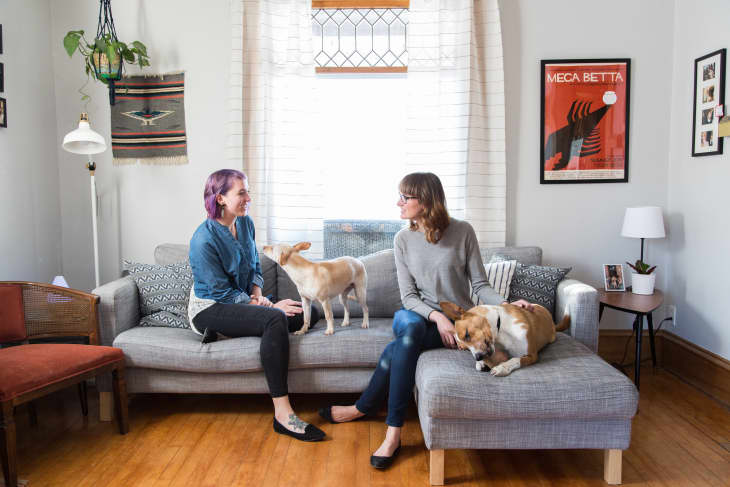How Having Roommates Is Good For Your Health (& Your Wallet)

The United Kingdom last week created a new government leadership role, naming Tracey Crouch the world’s first “minister of loneliness.” While the idea might lend itself to punchlines, the role is designed to address what has become a surprisingly serious public health crisis. Loneliness contributes to addiction, depression, heart disease, and dementia; its long-term mortality effect is on par with smoking 15 cigarettes a day.
“Essentially that data is telling us that loneliness kills,” former U.S. surgeon general Dr. Vivek Murthy told the Boston Globe recently.
Seniors, whose social networks may lapse after they leave the workplace or if they lose some mobility, are especially at risk from social isolation. In Britain, half a million people over 60 said they only talk to another person once a week or less, and 3.9 million said the TV was their main companion. And most general practitioners polled in the UK reported seeing at least one patient a day who scheduled an appointment mainly because they were lonely.
Meanwhile, there’s an affordable housing crisis in the UK — particularly in London, whose total property value now eclipses that of the next 30 biggest British cities combined. Home prices in the capital are so out of hand, and affordable development so scarce, that building new homes on existing rooftops has emerged as one potential solution.
Now, I’m no minister of loneliness, or housing, or anything else. But I feel like there’s an elegantly simple way to address these two problems at once.
My Three-Step Plan to Solve Loneliness and Housing Affordability
- Step 1: Get a roommate (or two, or three).
- Step 2: Show some basic human respect and civility toward each other — i.e., don’t be a jerk or a weirdo who leaves bottles of urine around the house.
- Step 3: Presto — enjoy the benefits of built-in socializing and half-priced housing!
Okay, I realize I’m over-simplifying some very serious problems. Not everyone can handle living with others, and that many roommate relationships eventually fail because of a breakdown in Step 2.
But you don’t have to become best friends with your roommate (although I actually married one of my housemates) to offset the worst effects of loneliness. It simply forces frequent face-to-face interactions with another living soul, which, believe it or not, is good for you. Plus, it’s just one more person in your network who would notice and might be able to help if you got the flu or fell down the stairs.
If more of us could simply manage to keep it together in the presence of other human beings, it could dramatically reduce our housing costs — and potentially even improve our health as well.